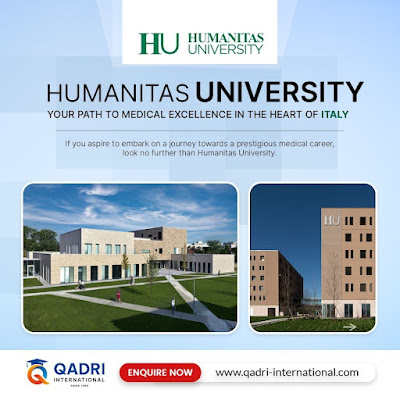Chart Your Course: Study Medicine in Italy and Shape Your Destiny
Introduction
Are you considering studying medicine abroad? Italy could be the perfect destination for you. With its rich history, cultural heritage, and renowned educational institutions, Italy offers a unique and enriching experience for medical students. In this blog, we'll explore why study medicine in Italy is an excellent choice, what you need to know about the application process, and what life as a medical student in Italy entails.
Why Choose Italy for Medical Studies
Italy boasts a high-quality education system that is internationally recognized. Medical degrees from Italian universities are respected worldwide, providing graduates with numerous career opportunities. Moreover, the tuition fees and cost of living in Italy are relatively affordable compared to other European countries, making it an attractive option for international students.
Overview of the Italian Education System
The structure of medical education in Italy is rigorous and comprehensive. It typically involves a six-year program divided into pre-clinical and clinical phases. Students begin with theoretical studies and basic sciences, gradually moving into more practical and clinical training. Key institutions like the University of Milan, Sapienza University of Rome, University of Bologna, and University of Pavia are renowned for their medical programs.
Top Medical Universities in Italy
- University of Milan
- Known for its innovative research and high academic standards.
- Sapienza University of Rome
- One of the oldest and most prestigious universities in Italy.
- University of Bologna
- Offers a diverse range of medical courses and programs.
- University of Pavia
- Renowned for its excellent clinical training and research facilities.
- Qadri International
- A leading institution providing top-notch medical education and support for international students.
Admission Requirements
To study in Italy, students must meet specific eligibility criteria. This includes having a high school diploma or equivalent, proficiency in English or Italian, and passing the required entrance exams like IMAT (International Medical Admissions Test). Other necessary documents include transcripts, letters of recommendation, and a personal statement.
Application Process
Applying to Italian medical schools involves several steps. First, research the universities and programs that interest you. Next, prepare your application materials, including transcripts, recommendation letters, and proof of language proficiency. Submit your application before the deadlines and prepare for any required entrance exams. Ensuring all your documents are in order and meeting the deadlines is crucial for a successful application.
Language Requirements
Many medical programs in Italy are offered in both English and Italian. For courses taught in English, students must provide proof of English language proficiency through tests like IELTS or TOEFL. For programs in Italian, proficiency in the Italian language is required, and students might need to take language courses or pass language proficiency exams.
Cost of Studying Medicine in Italy
The cost of study medicine in Italy includes tuition fees and living expenses. Tuition fees can vary depending on the university and program, but they are generally lower than in many other European countries. Additionally, Italy offers various scholarships and financial aid options to help international students manage their expenses.
Scholarships and Financial Aid
Several scholarships are available for international students wishing to study medicine in Italy. These scholarships can cover tuition fees, living expenses, or both. Some well-known scholarships include the Italian Government Scholarships, regional scholarships, and university-specific financial aid programs. It's essential to research and apply for these scholarships early to increase your chances of receiving financial support.
Conclusion
Studying medicine in Italy offers a unique blend of high-quality education, cultural richness, and international recognition. With affordable tuition fees, numerous scholarships, and excellent clinical training opportunities, Italy is an ideal destination for aspiring medical professionals. If you're considering studying medicine abroad, Italy should be at the top of your list.
Contact Us :-
Visit Website — https://qadri-international.com/
Address: 1704, Opal Tower, Abraj Street, Burj Khalifa Blvd, Business Bay, PO Box: 31657, Dubai, U.A.E
Landline no.: +97143351390
Mobile no. +971507682055
Mail : info@qadri-international.com
FAQs
What are the language requirements for study medicine in Italy?
Most universities offer medical programs in both English and Italian. Students must provide proof of proficiency in the respective language, usually through exams like IELTS, TOEFL, or Italian language tests.How much does it cost to study medicine in Italy?
Tuition fees for medical programs in Italy are relatively affordable compared to other European countries. Additionally, scholarships and financial aid options are available to help manage costs.Can international students work while studying medicine in Italy?
Yes, international students can work part-time while studying, but there are restrictions on the number of hours they can work. It's essential to check the specific regulations for student employment in Italy.What are the visa requirements for study in Italy?
International students need a student visa to study in Italy. The requirements include a valid passport, proof of enrollment, financial statements, and health insurance. It's crucial to apply for the visa well in advance.What are the career opportunities after graduating from a medical program in Italy?
Graduates can pursue residency programs in Italy or other countries. They can work in hospitals, clinics, research institutions, or continue their education with further specialization.


.jpeg)

Comments
Post a Comment